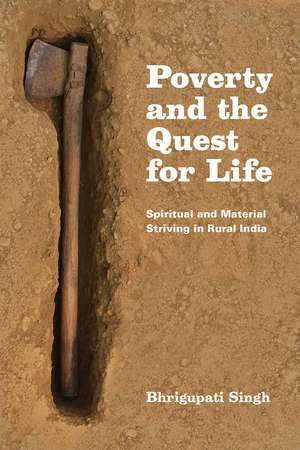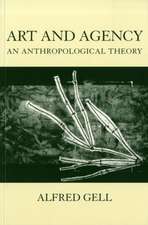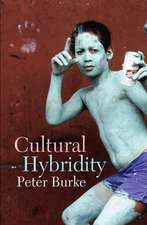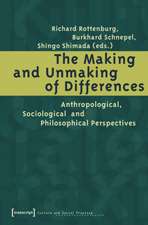Poverty and the Quest for Life: Spiritual and Material Striving in Rural India
Autor Bhrigupati Singhen Limba Engleză Paperback – 6 apr 2015
The Indian subdistrict of Shahabad, located in the dwindling forests of the southeastern tip of Rajasthan, is an area of extreme poverty. Beset by droughts and food shortages in recent years, it is the home of the Sahariyas, former bonded laborers, officially classified as Rajasthan’s only “primitive tribe.” From afar, we might consider this the bleakest of the bleak, but in Poverty and the Quest for Life, Bhrigupati Singh asks us to reconsider just what quality of life means. He shows how the Sahariyas conceive of aspiration, advancement, and vitality in both material and spiritual terms, and how such bridging can engender new possibilities of life.
Singh organizes his study around two themes: power and ethics, through which he explores a complex terrain of material and spiritual forces. Authority remains contested, whether in divine or human forms; the state is both despised and desired; high and low castes negotiate new ways of living together, in conflict but also cooperation; new gods move across rival social groups; animals and plants leave their tracks on human subjectivity and religiosity; and the potential for vitality persists even as natural resources steadily disappear. Studying this milieu, Singh offers new ways of thinking beyond the religion-secularism and nature-culture dichotomies, juxtaposing questions about quality of life with political theologies of sovereignty, neighborliness, and ethics, in the process painting a rich portrait of perseverance and fragility in contemporary rural India.
Singh organizes his study around two themes: power and ethics, through which he explores a complex terrain of material and spiritual forces. Authority remains contested, whether in divine or human forms; the state is both despised and desired; high and low castes negotiate new ways of living together, in conflict but also cooperation; new gods move across rival social groups; animals and plants leave their tracks on human subjectivity and religiosity; and the potential for vitality persists even as natural resources steadily disappear. Studying this milieu, Singh offers new ways of thinking beyond the religion-secularism and nature-culture dichotomies, juxtaposing questions about quality of life with political theologies of sovereignty, neighborliness, and ethics, in the process painting a rich portrait of perseverance and fragility in contemporary rural India.
Preț: 244.28 lei
Nou
Puncte Express: 366
Preț estimativ în valută:
46.75€ • 48.63$ • 38.59£
46.75€ • 48.63$ • 38.59£
Carte tipărită la comandă
Livrare economică 14-28 aprilie
Preluare comenzi: 021 569.72.76
Specificații
ISBN-13: 9780226194547
ISBN-10: 022619454X
Pagini: 328
Ilustrații: 4 halftones, 2 tables
Dimensiuni: 152 x 229 x 25 mm
Greutate: 0.54 kg
Editura: University of Chicago Press
Colecția University of Chicago Press
ISBN-10: 022619454X
Pagini: 328
Ilustrații: 4 halftones, 2 tables
Dimensiuni: 152 x 229 x 25 mm
Greutate: 0.54 kg
Editura: University of Chicago Press
Colecția University of Chicago Press
Notă biografică
Bhrigupati Singh is an assistant professor of anthropology at Brown University and is coeditor of The Ground Between: Anthropologists Engage Philosophy.
Cuprins
Prologue
1 First Impressions, and Further
2 The Headless Horseman of Central India: Sovereignty at Varying Thresholds of Life
3 Mitra Varuna: State Power and Powerlessness
a. Who Ate Up the Forests?
b. Mitra, the Caregiving State
4 The Coarse and the Fine: Contours of a Slow-Moving Crisis
5 Contracts, Bonds, and Bonded Labor
6 Erotics and Agonistics: Intensities Deeper Than Deep Play
7 Divine Migrations: Neighborliness between Humans, Animals, and Gods
8 The Waxing and Waning Life of Kalli
9 Bansi Mahatmaya (The Greatness of Bansi), an Erotic Ascetic
10 Departure, and Marriages and Deaths
11 The Quality of Life: A Daemonic View
Notes References Index
1 First Impressions, and Further
2 The Headless Horseman of Central India: Sovereignty at Varying Thresholds of Life
3 Mitra Varuna: State Power and Powerlessness
a. Who Ate Up the Forests?
b. Mitra, the Caregiving State
4 The Coarse and the Fine: Contours of a Slow-Moving Crisis
5 Contracts, Bonds, and Bonded Labor
6 Erotics and Agonistics: Intensities Deeper Than Deep Play
7 Divine Migrations: Neighborliness between Humans, Animals, and Gods
8 The Waxing and Waning Life of Kalli
9 Bansi Mahatmaya (The Greatness of Bansi), an Erotic Ascetic
10 Departure, and Marriages and Deaths
11 The Quality of Life: A Daemonic View
Notes References Index
Recenzii
“Poverty and the Quest for Life is a brilliant ethnographic exploration of the complex internal contradictions and tensions in a cultural milieu too long dominated by the sere binarisms of structuralist thought. Singh provides deep insights into the economics of survival, caste relations, forms of worship, and the ethics of sexual passion, never shying away from the problem of describing evanescent phenomena that escape more flatfooted authors or from the meat-and-potatoes aspects of economics.”
“Overflowing with life in all its practical, religious, political, and aesthetic facets, this extraordinary ethnography stuns the reader with its account of poverty in rural India—not only as a complicated issue for policy, but as the grounds for rethinking how ethnographers study the ordinary and what the quality of life itself means.”
“Poverty and the Quest for Life is a love affair with anthropology. It is a scintillating, compelling, innovative work that shows the nearness of sorrow and joy, tragedy and comedy on the stage of the ordinary. Like a miniaturist, Singh pays attention to every tiny detail so that Shahbad becomes that unforgettable place from which we journey into the singularity of lives that, in turn, become our guides into rethinking our conceptual repertoire of life, nomadic gods, subaltern speech, sovereignty, intensity, thresholds, agon, gift, frugality, poverty. This book belongs to the shelf of modern classics.”
“Singh is an exploratory thinker and a creative practitioner of what might be called nomadic ethnography. In this study of poverty and the quest for life in India he draws upon gods and visionaries to help us know and feel how life is lived in the zones examined. To do so, he carries us across thresholds of territory, class, time, and exploratory traditions in western and eastern thought. Poverty and the Quest for Life is an original and mesmerizing study which will make everyone who reads it think more deeply about this world.”
"For stimulating ethnographic and meditative reflection on moral lives, it was rewarding to engage with Singh’s Poverty and the Quest for Life."
"Singh speaks about how his examination of the Sahariyas, a tribe living in extreme poverty in Northwest India, stretches and blurs the boundaries of religion and secularity in studying how the tribespeople reflect on questions of ethics, happiness, and quality of life. His work encourages scholars of religion—particularly those engaging with nonwestern traditions—to develop a comparative vocabulary that goes beyond Eurocentrism and Postcolonialism alike."
"Bhrigupati Singh’s ethnography of an impoverished region in Rajasthan is a rich and thought provoking account of Shahabad, a remote area of disappearing forests in Rajasthan inhabited by former bonded labourers (Sahariyas), among other groups. . . . with so much ground covered, both conceptually and in terms of topics studied, this book does succeed in compelling us to rethink how the quality of life is understood."
"Reading this book is like entering a ground fertile with concepts and ideas. It takes the reader on the redemptive quest of realising, in Singh’s words, ‘the abundance of life’."
"Singh inspires the reader to think about poverty, not just about the way the World Bank defines it, but also about what a 'good life' might be to the Sahariya and whether monetary wealth is necessary to
have one. . . The fact that Singh is willing to include himself and his own frailties in his narrative—something many researchers conspicuously try to avoid—is a welcome highlight of his writing. Whenever one spends time living with an individual or a group, one’s presence alters what occurs. Singh is not afraid to acknowledge himself as a part of the conversation. It helps to give perspective and flavor to his observations and interpretations."
have one. . . The fact that Singh is willing to include himself and his own frailties in his narrative—something many researchers conspicuously try to avoid—is a welcome highlight of his writing. Whenever one spends time living with an individual or a group, one’s presence alters what occurs. Singh is not afraid to acknowledge himself as a part of the conversation. It helps to give perspective and flavor to his observations and interpretations."











